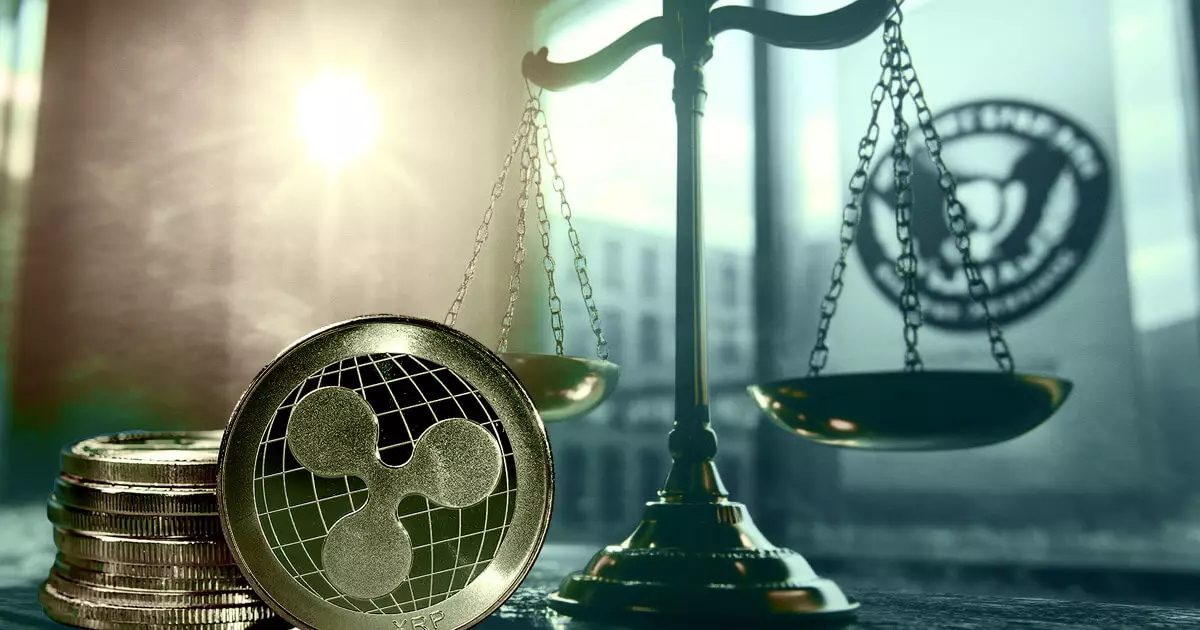The ongoing legal saga between Ripple and the U.S. Securities and Exchange Commission (SEC) has become a focal point for discussions surrounding cryptocurrency regulation. Unveiling a new chapter in this contentious battle, the SEC’s recent actions highlight its determination to challenge aspects of a ruling that initially favored Ripple, while leaving certain pivotal decisions intact. With the backdrop of this legal confrontation, the implications for both Ripple and the broader cryptocurrency market remain substantial.
Last year, Judge Analisa Torres delivered a mixed ruling in favor of Ripple, sparking optimism among advocates for the cryptocurrency. The court concluded that Ripple’s sales of XRP to retail investors through exchanges did not constitute a violation of U.S. securities laws. This determination represented a noteworthy distinction between retail and institutional buyers—an interpretation that, if upheld, could redefine how digital assets are categorized and regulated going forward. However, the court’s finding that XRP sales to institutional investors fell under securities regulations left a significant question mark over Ripple’s business model and operational protocols.
On October 17, the SEC escalated its legal maneuvers by submitting a Civil Appeal Pre-argument statement to the U.S. Court of Appeals for the Second Circuit. This latest filing underscores the agency’s focus on contesting specific elements of Judge Torres’s ruling rather than the ruling itself regarding retail sales. The SEC aims to challenge Ripple’s programmatic sales on trading platforms, which could provoke further regulatory scrutiny over how cryptocurrencies can be distributed and exchanged.
Moreover, the SEC is not merely targeting the company; it is also pursuing Ripple executives Brad Garlinghouse and Chris Larsen. The allegations suggest that both executives assisted in violations surrounding the sale of XRP, a move that could have significant repercussions for corporate governance in the cryptocurrency sector. The request for the appellate court to review these elements “de novo” marks a strategic pivot, as it intends for the court to reevaluate the legal questions without relying on prior judgments.
What remains particularly interesting about this appeal is the SEC’s omission of challenges to the $125 million penalty imposed on Ripple or the decision to deny disgorgement. This oversight may signal a tactical recalibration by the SEC, perhaps recognizing the limited success of protracted litigation over financial penalties. The SEC appears to be focusing on areas where it believes it can achieve a clearer regulatory victory, hoping to fortify its stance against Ripple’s business practices.
Consequently, the SEC’s actions have ignited speculation within the cryptocurrency community regarding potential consequences for the industry at large. Increased scrutiny of token offerings and exchanges looms on the horizon, potentially leading to a reshaping of compliance standards. The broader implications could involve setting precedents that influence how digital assets are governed and traded, thus creating an environment where regulatory compliance becomes a priority for companies operating in the space.
In a bid to maintain a robust defense, Ripple’s Chief Legal Officer, Stuart Alderoty, has reiterated that the core ruling—that XRP is not deemed a security—remains unchallenged. His statements reflect a resolute stance in defiance of the regulatory body, emphasizing the importance of the initial ruling in shaping the future regulatory landscape. Alderoty indicated that Ripple plans to file a cross-appeal, suggesting that the company is prepared to extend its battle in the courts.
As the legal skirmishes continue, the stakes are high—not only for Ripple but for the entire cryptocurrency market. The outcome of this appeal could significantly influence regulatory frameworks, the viability of various cryptocurrencies, and the strategies of financial technology firms at large. Ripple’s fight against the SEC illustrates a crucial juncture in the ongoing dialogue about the legitimacy and governance of digital assets, spotlighting the necessity for clear and cohesive regulatory policies in an increasingly digital economy.
The path ahead is fraught with challenges, but it also presents opportunities for legal clarification in the complex and evolving landscape of cryptocurrency regulation. Whether regulators will adapt to this changing world or impose stringent limitations remains uncertain, but one thing is clear: Ripple’s story is far from finished.

